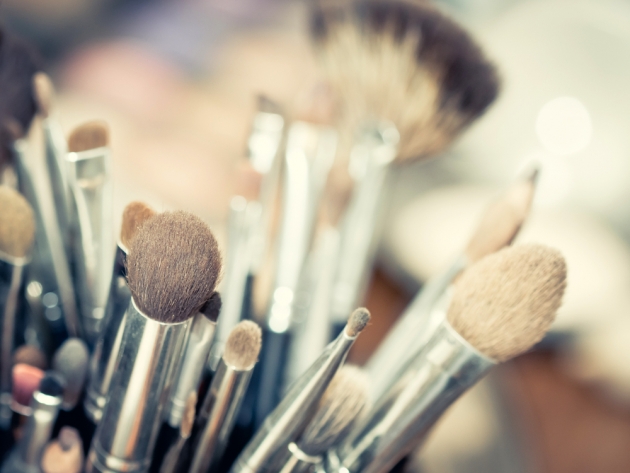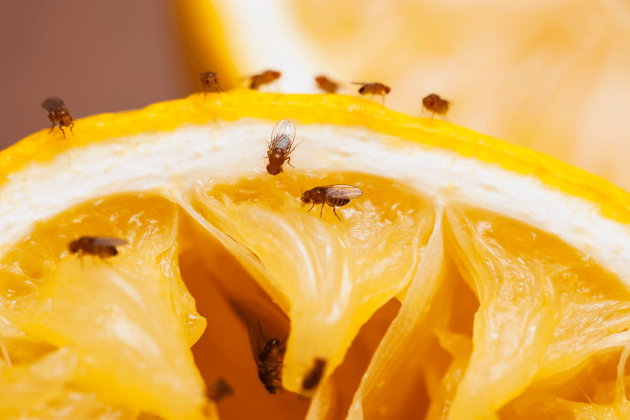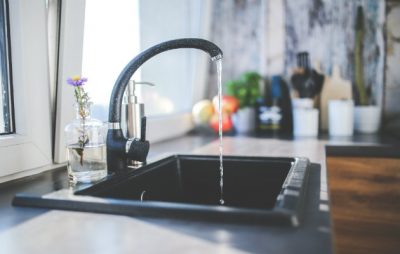How many of you actually clean your makeup accessories on a regular basis? A recent survey by Anisa International found that 30% of the women do not clean their makeup accessories regularly. More shocking findings showed that 22% of the women has admitted to never cleaning them at all.
Brace yourself girls! The results of not cleaning your makeup tools could result in a more dramatic effect than that of a smokey eye, transforming your favourite brush into your skin’s biggest enemy!
Not to worry! Helpling Australia has the perfect solutions for clean makeup and perfect skin:
Keeping your makeup brushes clean
Ever wondered what the root cause of sudden breakouts is? Perhaps, the problem lies in the thousands of germs multiplying in your brushes. That is why it is so important to keep your brushes as clean as possible.
We recommend you wash your brushes as frequently as possible. However, we understand that it would be impractical to wash your brushes after each use, so washing them every 2 weeks should suffice. And for the 22% of the women who has never cleaned their brushes, use disposable sponges- they are cheap and also does the job well.
How to clean your makeup brushes?
The two most common types of makeup brushes are:
Natural hair brushes, which are primarily used with powdered foundation. Clean natural hair brushes with soap water solution at a neutral pH level before leaving them to dry. Avoid drying them in a vertical position as this can damage the wood that holds the brush together.
Synthetic hair brushes, which are used with liquid foundation. Clean synthetic hair brushes with a non-alcoholic cleanser. There are plenty of types of spray on cleaning liquid that do not require water. Simply spray the liquid onto the brush and clean it off with a clean towel.
To maintain the softness of the brush hair, apply conditioner to it on a monthly basis.
Makeup Sponges
Disposable sponges are the most hygienic option. However, if you are used to a specific brand of sponge, clean it with some dishwashing liquid and a little spritz of alcohol. Another more gentle solution is to wash them with baby wash. Leave your sponges out dry before storage or using again.
What about your makeup?
Lipstick
We recommend you clean your lipstick every 4-5 months, especially those of you who apply lipstick without a brush. To disinfect, dip a damp cloth in some alcohol and give the lipstick a light wipe.
Makeup pouch
It is a common mistake to overlook the cleanliness of your makeup pouch. Did you know your makeup pouch is constantly collecting germs from your makeup and accessories, which can potentially cause nasty breakouts? Fixing this problem is easy, simply put the pouch in washing machine every 2-3 months.
How to remove makeup stains on clothes
To remove makeup stains, soak your stained clothes in a large bowl of vinegar water solution with a few slices of lemon. Let it soak for a couple of minutes before rubbing some mild detergent onto the stain. Once the make up stains have completely disappeared, rinse the garment with lukewarm water.
Lipstick stains are one of the toughest makeup stains to remove. Instead of the above method, soak a cotton ball in ammonia and rub it onto the stain before washing the affected area in hot water.
Organise and throw away expired makeup
Organise your makeup and bring order to your dressing table.Tupperware or stackable jars are great for organising your makeup. Like food, your makeup has an expiration date. Read the labels well and avoid cluttering your dressing table by removing expired makeup:
Do you have any other cleaning tips to share with us? Let us know in the comments.






